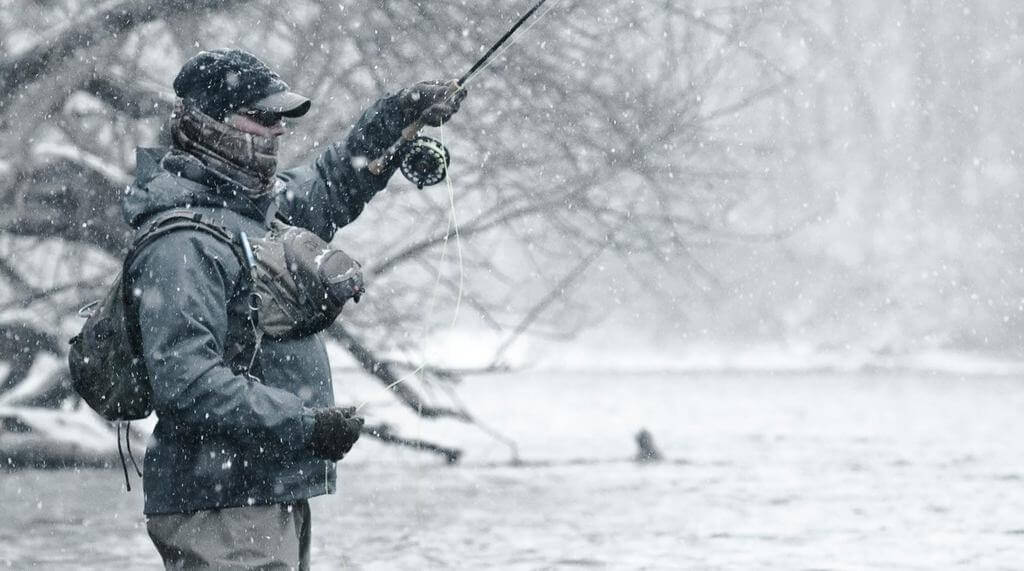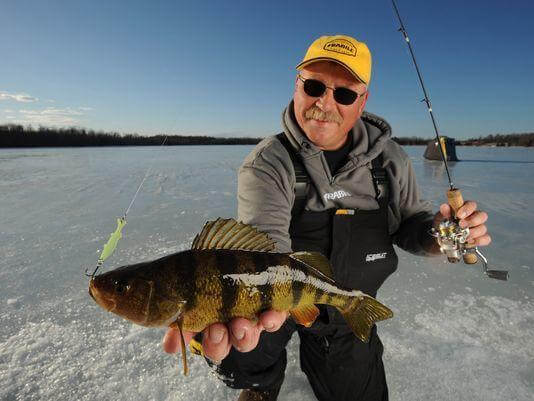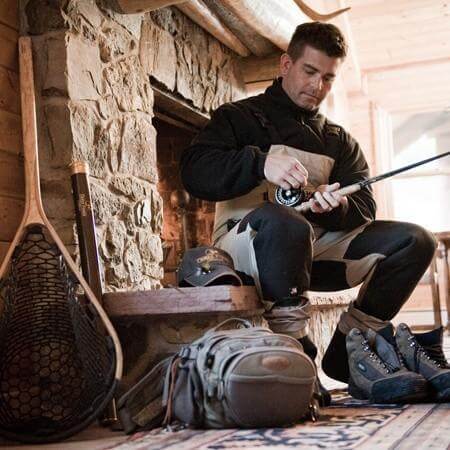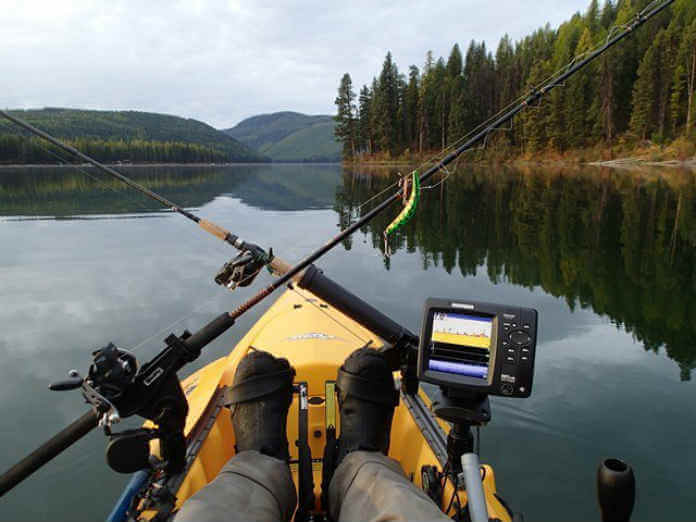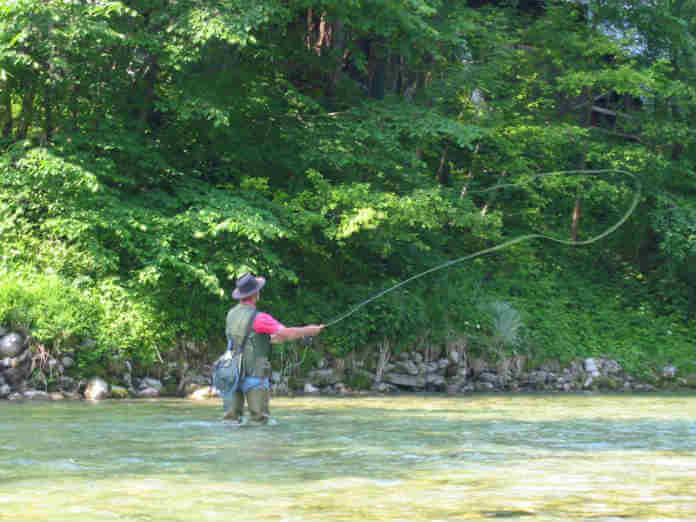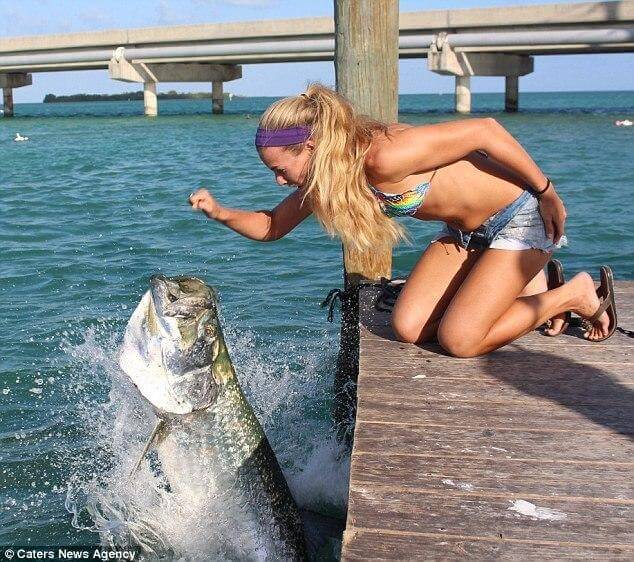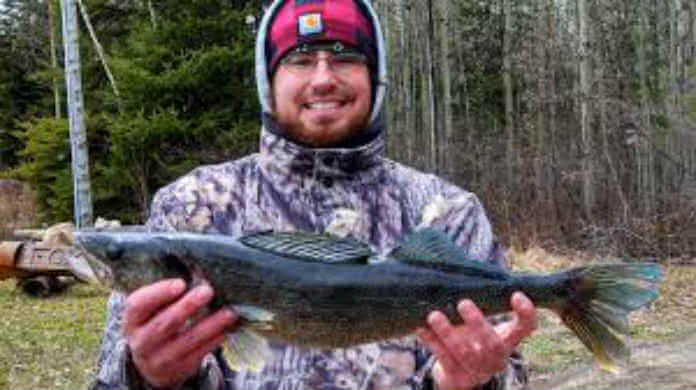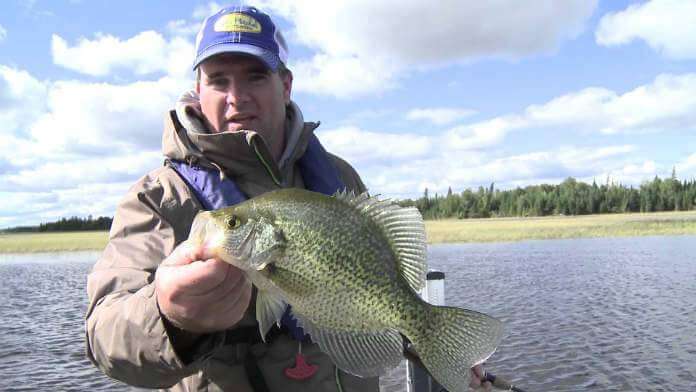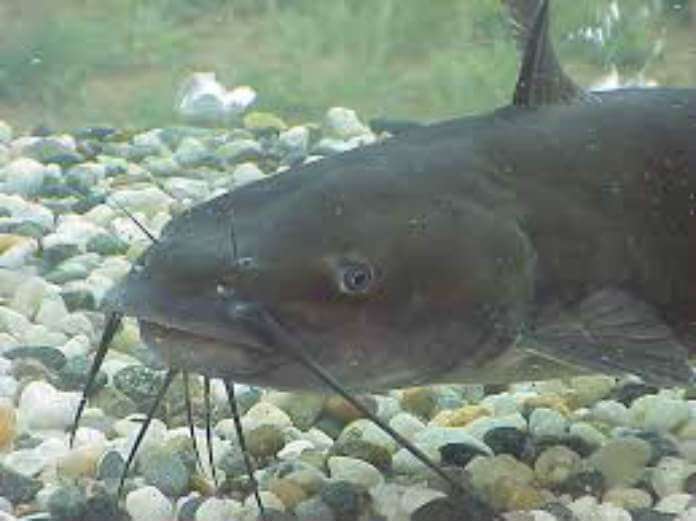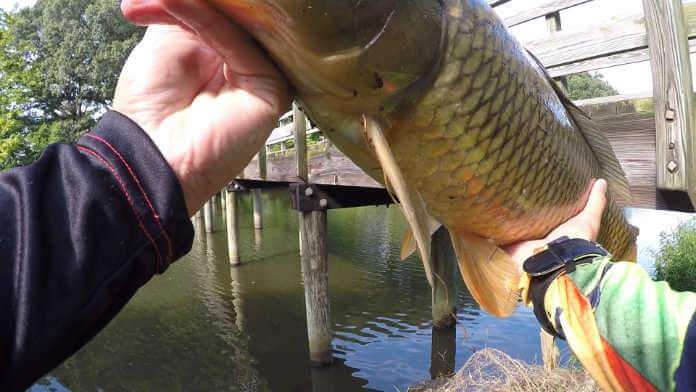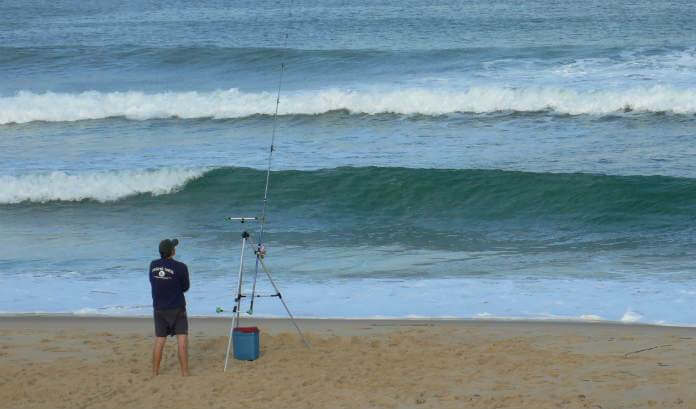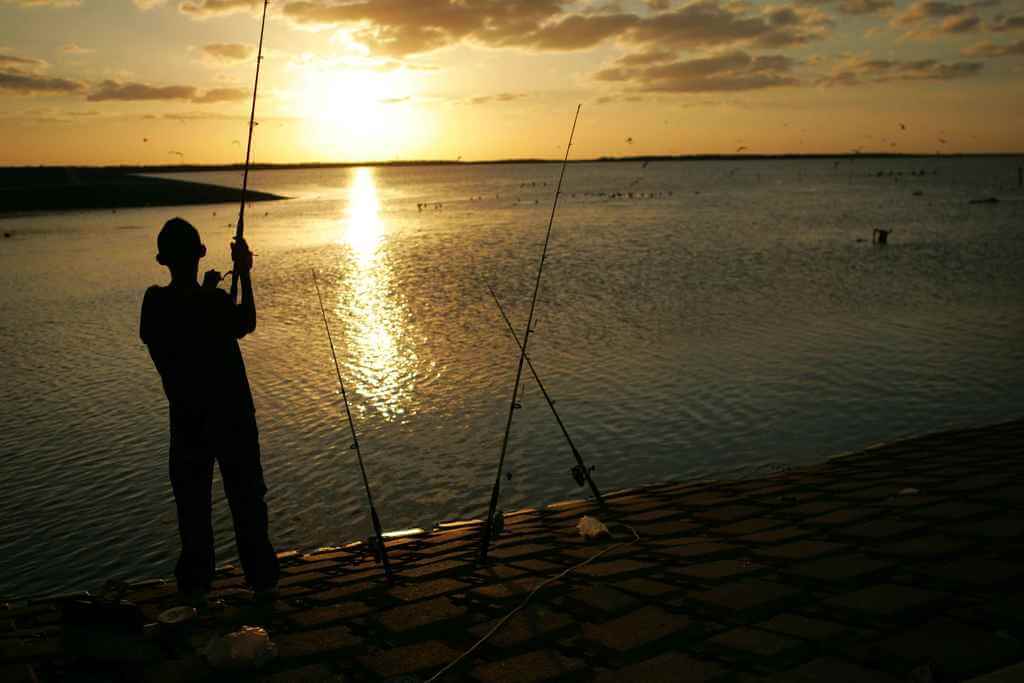Every angler could vouch that winter is not the best season to grab your reel and catch some fish. Here I have helpful tips for winter fishing.
People during winter become extremely lazy and want to sleep until the season passes. It is the same with the fish. These creatures have certain behaviors that anglers should be mindful of to have a successful fishing spree.
The Fish Behavior
Before you start catching some fish, you must first understand certain mechanisms to equip you for a successful fishing journey. You might think that “they are just fishes that wag their tail in the water. What is there to understand?” There is a lot to understand.
Factors such as the weather, air pressure, and water condition can affect a fish’s behavior. Different species of fish react differently to certain weather and water conditions. Like people, some like the rain, they prefer the sun, and many hate the winter.
Barometric Pressure
Barometric pressure (also known as atmospheric pressure) is the force exerted by the Earth’s atmosphere (or of another planet) at a given point. It is known as the “weight of the air.” Many anglers believe that barometric pressure levels can determine good or bad fishing. It can either be stable, rising, or falling at any given time.
One factor an angler should always be mindful of is Barometric Pressure. It is responsible for maintaining the buoyancy level of the ocean, which shuffles the fish if changes occur.
But the expert says that the Barometric Pressure alone does not significantly affect the behavior of a fish. It can only be felt lightly by this aquatic species. What affects them most is the weather effects on water, causing the change in the Barometric Pressure. The weather is the primary cause of a Barometric pressure change that can affect water levels, light penetration, and temperature.
Water Changes, Fish Changes
Have you ever experienced being a fish millionaire on one day and a total scrapper on the next and wondered what happened? Do not worry, and you are not alone in that. The fish also seek to find their comfort zone in the ocean. A balance of right water temperature, oxygen, and light levels composes a perfect fish habitat. There are different effects of water temperature on fishes because the water is basically what determines the lifestyle of these aquatic lives.
Fish feed in cold weather, being cold-blooded, their metabolism slows, and they tend to feed less. Fish will go after slower and smaller baits. They tend to stay to the top more because they like to follow moving food. All fish are more sluggish in the cold, so they follow slower trolling baits and bite less often.
So don’t be alarmed if your perfect fishing spot suddenly becomes abandoned by fish. It just means that they need a Plan B or an alternative to adapt to the weather change. It may be a change in habitat, behavior, and other factors.
5 HELPFUL TIPS FOR WINTER FISHING
1. Equipment Check
One major part of this adventure is to make sure you have the equipment necessary for your trip. Ensure that everything is complete. Here is a basic list of fishing equipment that you should have:
-
- Fishing Pole
- Fishing Rod
- Reel
- Fishing Line
- Fishing Hooks
- Bait or Lures
The first thing is first to make sure you have all your gears ready and in good shape. To catch those fish, you have to make sure that your equipment is still of high quality. Check those reels and make sure they are not rusty and still work 100 percent fine. In general, make sure that you have all the fishing tools you need to catch yourself more than a handful of fish.
2. Preparing the Right Bait
Your trip will not be complete without securing yourself a nice and tasty bait for the fish. Carefully decide one or two to bring that will surely attract the fishes towards you. This part is vitally needed because, without your bait, you will have no fish to catch.
For the winter season, there are two baits to prepare. One light bait, when fishes decide to swim on the shallow surface if ever the sun decides to cool the waters. Second, heavy bait, to catch the fishes that wander in the deeper part of the waters when there is no sun in sight. Listed below are some of the top pick baits I use during my winter catch.
Salt
Spice up your bait by sprinkling salt into it. This is a major attraction to lingering fishes in the area. Salt has a significant effect on water and on the bait that automatically lures predators to it. It can be used in any season of the year, but it has its own special powers during winter.
Forget the chemically processed table salt. Instead, go for the rock or sea salt. Bathe your bait, or whatever it is you will be using, with your rock salt and see how it easily captures your fish.
Always carry with you a bag of salt for extra taste! Salts may be uncommonly used but overwhelmingly effective.
Bread
Bread is considered one of the top-winter baits, especially on rivers where chub and roach both adore flakes or crusts.
Any bread will do the trick, but we need something light and easy-flowing for this occasion, considering it is the winter season. Use a white bread loaf and slice it into tiny pieces. Remove the crust to have the softer part left because that is the only part that will be useful in your mission.
Maggots
This might be the all-time top fish catcher during this cold season.
Maggots are colorful, which will attract the fishes in, and are easily digested. But maggots are very light in weight. Hence, they will give you a hard time balancing your hook. Thus, incorporate a rubber grub along with your maggot to balance its weight and prevent it from swimming along with the current.
Spices
Spices have been a pioneer member in the field of fish-catching. There is no exact spice mix recipe that is used to catch your fish. Your imagination will limit this.
You have a wide variety of spices that can be easily found in any store. What is left to do is to merge your chosen hook bait to the spice of your choice until it’s evenly covered. Voila! You have your spiced-up fish bait.
Artificial Bait
You can also use artificial lures or baits. This will save you money somehow because the fish do not easily drag away this type of bait. So after catching one fish, you can still use it on the next one. Plus, it is easier to determine the weight of your bait when using this particular type of bait.
3. Pick the Perfect Location
During this time of the year, the fishes migrate or relocate themselves to adapt to weather and other water factors. There may be lakes that might have zero population. So, better be informed and research locations that are best for fishing during the winter season.
You can look it up online, considering that the internet is an all-access portal to any information needed. Make sure to dig into details regarding water levels and current flow conditions. While looking for a perfect spot, you should keep in mind the Road accessibility and a calm or natural current flow of your local lakes or rivers.
You can access Grand Fishing Report to give you the latest information regarding lake fishing. Another useful site is the Washington Department of Fish and Wildlife, wherein you can find the major fishing areas and additional useful fishing tips. Find out what species bites best during particular seasons through Fish Hound, another fishing site where you can search for details about your local areas’ fishing conditions.
If money is not an object, there are many top winter fishing destinations across the globe. One of them might be just a few feet away from you. Then again, your internet is your best friend.
4. Time is of the Essence
Another factor to consider to make sure your trip is perfect is answering the question “When.” Choosing the right time for your fish outing is also important. As mentioned above, light and temperature levels are some of the things that make a fish’s habitat. During the wintertime, these two are somewhat difficult to measure.
Fishes become sluggish and inactive when water temperatures are lower. Why? Because all fish are cold-blooded animals. They lack the ability to maintain their body temperature constantly as mammals or warm-blooded animals do. Therefore, the temperature of their surrounding significantly impacts their behavior and other bodily functions, such as eating.
The bottom line is that fishing is comparatively slower when it is too cold than being too hot. There is a bit of math to calculate to know when to fish. Commonly, fishes are active when the water temperature is cool (defined to be between cold and hot) and when there is a sufficient amount of light.
So, keep on the lookout for days when the sun is up and shining and observe where it sheds its shine because it is the best place for you to go. Usually, during winter, the sun shines on the northern areas. So local lakes or rivers in the northern part are the best places to fish. Also, if you can see no clouds forming up in the sky, better those another day to fish because your chances will be low during those days.
Recommended Fishing Time
During the winter season, the best time for you to fish is around 11 am-2 pm when the sun has enough shining moments to cool down the surface. However, this is not limited to the thought that you can not catch fish at other times. You can still do but don’t expect it to be a handful.
If you wish to do it at some other hour, it is still possible, but keep in mind that fish will now be swimming deeper because the water is warmer on that part. So, you will have to use a long fishing line and a heavier bait.
There are specific months and days indicated and plotted for anglers to know the best times for fishing. It would be best to note those days to help with your time management problem.
5. Safety First!
I do not know about you, but winter is a very unpredictable season. So, to be prepared for your fishing trip, make sure to tick things off from your safety list before proceeding.
In some places, fishing is illegal unless permitted with a license. So wherever you plan to catch your fish, make sure to always bring your fishing license with you. This is to control and limit fishing in certain areas. To make sure that you don’t end up in bars, it is advisable and best to process a fishing license. It is better to be safe than in handcuffs.
Days before your trip, do not forget to check for updates regarding the weather. Mother Nature plays a great game when it comes to weather changes. Therefore, it is safe to check information about the weather to be sure.
May God forbid that certain circumstances might negatively happen, but in cases where there will be trouble, someone should know your whereabouts. If you plan on doing this alone or even with a friend, make sure to inform a family relative about your trip. It will be helpful that if ever bad things might occur, someone could easily locate or find you.
Dress-up!
The Winter season requires another set of fashion, or shall we say, a layer of fashion. Make sure to have a good set of gears to make you comfortable and battle the weather’s cold. Keep your skin covered, wear loose yet layered clothing and make sure your set of clothes is dry. While all of that is going on, prevent yourself from overheating as well. Too many clothes can be too hot, which will result in other side effects as well.
There you have it, 5 easy ways to catch a ton of fish. Remember all these tips for winter fishing and treat yourself to a great fishing experience.
